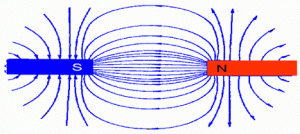 Hypothesis is understood to be the justification proposal before a certain phenomenon, element or process that takes place in any area of existence (that is, both natural and social). The hypothesis is one of the most important parts of the process of analysis and scientific study since it is through it that the theory begins to take shape, even if the hypothesis is refuted and annulled. The hypothesis is what allows the human being to start the thought process through which a certain type of knowledge will be obtained.
Hypothesis is understood to be the justification proposal before a certain phenomenon, element or process that takes place in any area of existence (that is, both natural and social). The hypothesis is one of the most important parts of the process of analysis and scientific study since it is through it that the theory begins to take shape, even if the hypothesis is refuted and annulled. The hypothesis is what allows the human being to start the thought process through which a certain type of knowledge will be obtained.
The term 'hypothesis'derives from the Greek and means to suppose or to put under consideration. The main and most elementary characteristic of a hypothesis has to do with its quality of proposition, possibility or suggestion that must still be tested and approved to finally become a scientific statement or theory.
This is directly related to the idea that a hypothesis is a proposal whose veracity or usefulness has not yet been corroborated, work that will be carried out through the scientific method corresponding to the science in question (since hypotheses can be formulated by and for any type of science regardless of its object of study, methodology or resources).
To develop the verification or validation of a hypothesis, scholars can resort to different elements such as observations and empirical tests, but also to previously validated theories and hypotheses, to critical and coherent analyzes in relation to the subject in question. The hypothesis is never posed in the form of a question if not in the form of a statement, and hence the need to validate such statement in order to maintain it, alter any of its parts or directly discard it in the event that it does not apply to the previously raised need. We can finally add that a hypothesis is generally stated in the conditional cause-consequence format.









